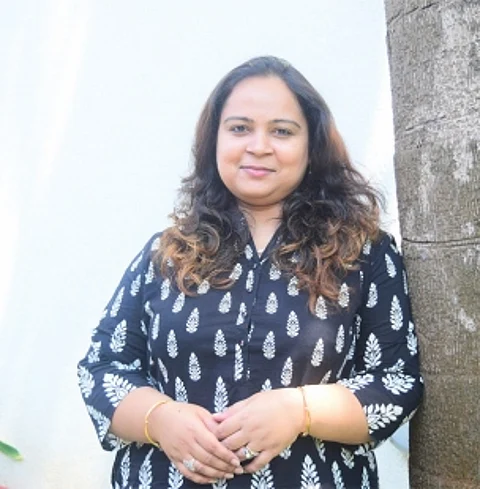

It is very easy to spot Sonia Shirsat in a room full of people. She will have the most beautiful
voice and the humblest disposition while talking to anyone. Rated as the best
Fadista (fado singer) in India of all time, Sonia has been singing
professionally for the last 14 years and has popularised this music genre and
put Goa on the music map with her vocals. Sonia recently received the Ustad
Bismillah Khan Yuva Puraskar 2016 by Sangeet Natak Akademi, New Delhi in the
category of Traditional and Folk Music at the hands of His Excellency Jagdish
Mukhi, the Governor of Assam.
“The award is in the Traditional and Folk
Music category so they considered both Mando, Dulpod and Deknhi as well
as Fado. The award is for Goan traditional music, tiatr music and fado,”
explains Sonia, now back in Goa. Previously, from the state of Goa, Rupesh
Gawas, Deepa Moghe and Lavu Gawde were recipients of this award.
A professor of law, Sonia has sung in 14
languages, and she has been called the Ambassador of Goan Music to the World.
She has played an important role in major national as well as international
events that have been held in Goa, including singing the theme song for the 3rd
Lusofonia Games in 2014. Besides Fado, she has lent her voice to various
Konkani albums and live performances.
Sonia had made a mark in the music genre
of Fado and has taken it across all segments of society. Coming from a
background without knowledge of Portuguese, she has excelled in its classical
music. “People have pre-conceived notions that if you don’t speak the language,
you can’t sing in it. But music speaks all languages; you don’t need to
understand the language to understand the music, whether it is Mando, Ghazal,
Fado, you can open doors to people’s hearts. It is not that difficult,”
she says.
The most recent endeavour keeping Sonia busy is the project Fado
de Goa, “For Fado de Goa, I am collaborating with Taj Hotels to
carry out sessions that will train people to learn about the Fado and
sing as well. We’ve had a very good response and we’ve completed four batches
already, with two in Margao, one in Panjim and one in Vasco. Some of the
students who attend the classes, complete their assignments and answer exams,
will qualify to the next level. We have already started the master classes with
ten students from the first batch. It’s a nice initiative and the idea is to
teach people to sing and learn about the Fado. Even if one is not a
musician and singer, you can come to Fado De Goa and learn about this
style of music,” says Sonia.
There are many participants who are students and find Fado very
exciting. “It is very nice to see children from schools and colleges joining
the classes; many of them are not even Portuguese students. We have students
from urban and semi urban areas as well as villages who have joined the
classes. Many are of the idea that the youth go only for loud and noisy music
forms but that’s not the case. Students in the age of 10 and 11 years are
interested in Fado and have very promising talent for this type of
music. We have trained 200 participants, of which, roughly 130 will be
students, school to college, the rest are adults,” she adds.
Sonia’s
experience gives her a better understanding of the music and the shift from its
early days in Goa to its current popularity. “There is a wider awareness now.
You have a lot more people taking up listening Fado and understanding
it. We have a lot of people who don’t speak Portuguese and yet show an interest
in Fado, even attending concerts. Fado is in the world music
scene and therefore they take to it. Apart from that, there is also a lot of
acceptance of Fado in India. People have travelled and gone to Portugal
and heard Fado and the internet has videos. The recent Shah Rukh Khan
movie spoke about Fado and a person sang Fado. There is a vast
difference compared to what the scene was 14 years ago, when it was only in Goa
and the people who spoke and knew Portuguese were the only ones that were
dealing with this form of music. Even if they don’t know the intricacies of Fado,
they at least know it exists and it is a semi classical, melancholic style of
music. The awareness has definitely increased,” concludes Sonia.